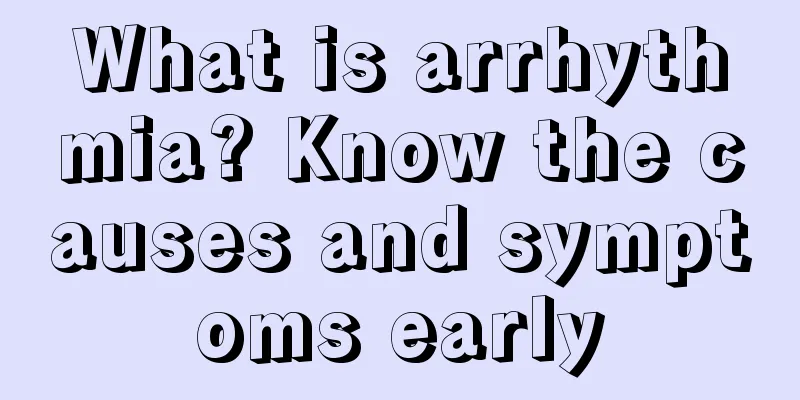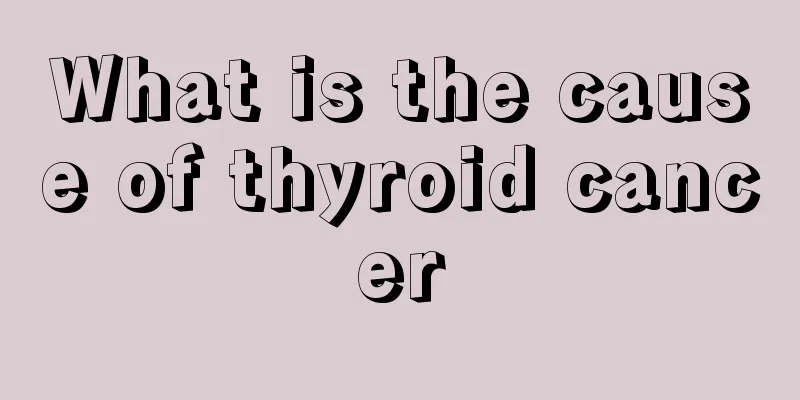What is arrhythmia? Know the causes and symptoms early

|
The most common causes of arrhythmia are some heart diseases, such as myocarditis, cardiomyopathy, coronary heart disease, etc. Patients with arrhythmia will have symptoms of low blood pressure and their heart rate will increase after meals. There are many types of arrhythmia and the symptoms they manifest are also different and require symptomatic treatment. 1. Causes of Arrhythmia Arrhythmias can be seen in various organic heart diseases, among which coronary atherosclerotic heart disease (CHD), cardiomyopathy, myocarditis and rheumatic heart disease (RHD) are the most common, especially in heart failure or acute myocardial infarction. Arrhythmias are also common in basically healthy people or patients with autonomic dysfunction. Other causes include electrolyte or endocrine disorders, anesthesia, hypothermia, chest or heart surgery, drug effects and central nervous system diseases, and some causes are unknown. 2. Common symptoms 1. Symptoms of coronary artery insufficiency: Various arrhythmias can cause a decrease in coronary blood flow. Occasional premature atrial contractions can reduce coronary blood flow by 5%, occasional premature ventricular contractions can reduce it by 12%, frequent premature ventricular contractions can reduce it by 25%, atrial tachycardia can reduce coronary blood flow by 35%, rapid atrial fibrillation can reduce it by 40%, ventricular tachycardia can reduce coronary blood flow by 60%, and coronary blood flow may be zero during ventricular fibrillation. For people with normal coronary arteries, various arrhythmias can cause a decrease in coronary blood flow but rarely cause myocardial ischemia. However, for patients with coronary heart disease, various arrhythmias can induce or aggravate myocardial ischemia, mainly manifested as angina pectoris, shortness of breath, peripheral vascular failure, acute heart failure, acute myocardial infarction, etc. 2. Symptoms of cerebral artery insufficiency: Different arrhythmias have different effects on cerebral blood flow. Frequent premature atrial and ventricular contractions cause cerebral blood flow to decrease by 8% and 12% respectively. Supraventricular tachycardia causes a decrease in cerebral blood flow of 14% to 23%. When the ventricular rate is extremely fast, it can even reach 40%, and during ventricular tachycardia it can reach 40% to 75%. For those with normal cerebrovascular diseases, the above-mentioned hemodynamic disorders will not cause serious consequences. However, if cerebrovascular diseases occur, they will be enough to cause insufficient blood supply to the brain, which may manifest as dizziness, fatigue, blurred vision, temporary blindness, or even aphasia, paralysis, convulsions, coma and other transient or permanent brain damage. 3. Symptoms of renal artery insufficiency: After arrhythmia occurs, renal blood flow also decreases to varying degrees. Frequent premature atrial contractions can reduce renal blood flow by 8%, while frequent premature ventricular contractions reduce renal blood flow by 10%. Renal blood flow decreases by 18% during atrial tachycardia; rapid atrial fibrillation and atrial flutter can reduce it by 20%; and ventricular tachycardia can reduce it by 60%. Clinical manifestations include oliguria, proteinuria, azotemia, etc. 4. Symptoms of mesenteric artery insufficiency: During rapid arrhythmia, blood flow decreases by 34%, and mesenteric artery spasm occurs, which can produce clinical manifestations of gastrointestinal ischemia, such as abdominal distension, abdominal pain, diarrhea, and even bleeding, ulcers, or paralysis. |
<<: How to treat arrhythmia, Chinese medicine is effective
>>: Symptoms of gallstones, early treatment when symptoms are detected
Recommend
How about the potato spot removal method
There are many ways to remove freckles. When remo...
What is the reason for a bloated belly
When eating, you should pay attention to the shel...
What are the ways to prevent lung cancer? Several ways to prevent lung cancer
At present, cancer often troubles human health, e...
What are the symptoms of gastritis?
Gastritis is a common gastrointestinal disease. P...
The efficacy and function of pomegranate shell
Many people like to eat pomegranates in life. Aut...
Early detection measures for lymphoma
To treat a disease, diagnosis is the first step. ...
Why does my face itch after using facial cleanser
Basically everyone has used facial cleansers, but...
Eliminate chin swelling
The chin occupies a large area on the human face,...
What is the best way to care for liver cancer? What daily health care measures should be taken for liver cancer?
Liver cancer is a very terrible disease. Over the...
What are the precautions for patients with ovarian tumors
After the occurrence of diseases such as ovarian ...
Cervical cancer may be caused by premature sexual activity
Cervical cancer may be caused by premature sexual...
Don’t think your swollen face is caused by drinking too much water
Often eating spicy and greasy food, not paying at...
What kind of manicure looks good
For many female friends, manicure is something th...
How long after a meal can I exercise
Fitness can not only shape the body, but regular ...
What should I do if the soup pot is burnt?
It is common to see soup pots getting burnt, whic...









